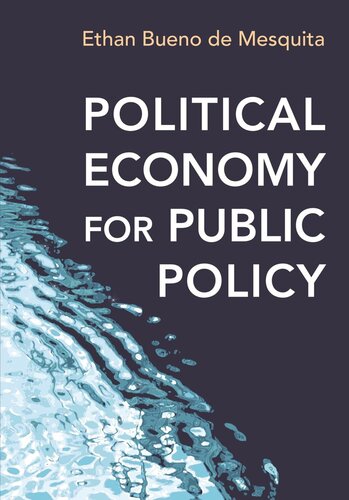

Most ebook files are in PDF format, so you can easily read them using various software such as Foxit Reader or directly on the Google Chrome browser.
Some ebook files are released by publishers in other formats such as .awz, .mobi, .epub, .fb2, etc. You may need to install specific software to read these formats on mobile/PC, such as Calibre.
Please read the tutorial at this link: https://ebookbell.com/faq
We offer FREE conversion to the popular formats you request; however, this may take some time. Therefore, right after payment, please email us, and we will try to provide the service as quickly as possible.
For some exceptional file formats or broken links (if any), please refrain from opening any disputes. Instead, email us first, and we will try to assist within a maximum of 6 hours.
EbookBell Team

4.0
86 reviewsThis textbook uses modern political economy to introduce students of political science, government, economics, and public policy to the politics of the policymaking process. The book's distinct political economy approach has two virtues. By developing general principles for thinking about policymaking, it can be applied across a range of issue areas. It also unifies the policy curriculum, offering coherence to standard methods for teaching economics and statistics, and drawing connections between fields.
The book begins by exploring the normative foundations of policymaking—political theory, social choice theory, and the Paretian and utilitarian underpinnings of policy analysis. It then introduces game theoretic models of social dilemmas—externalities, coordination problems, and commitment problems—that create opportunities for policy to improve social welfare. Finally, it shows how the political process creates technological and incentive constraints on government that shape policy outcomes. Throughout, concepts and models are illustrated and reinforced with discussions of empirical evidence and case studies.
This textbook is essential for all students of public policy and for anyone interested in the most current methods influencing policymaking today.